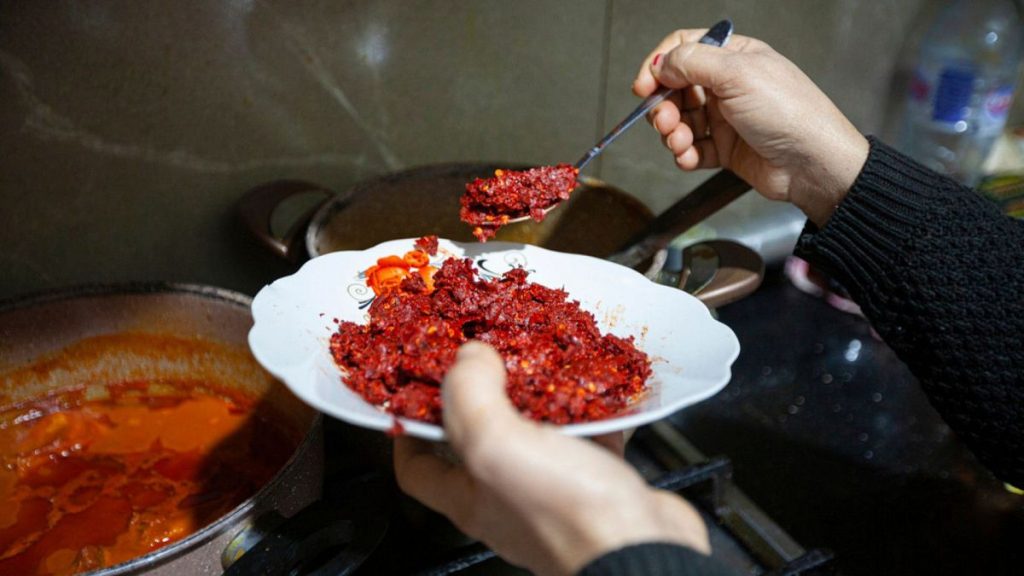Paragraph 1: A Fiery Celebration of Culinary Heritage
The vibrant coastal town of Nabeul, Tunisia, recently hosted a festival dedicated to harissa, a fiery condiment deeply ingrained in Tunisian culture and cuisine. This event marked a significant milestone for harissa, celebrating its global recognition and burgeoning popularity following its inscription on UNESCO’s Intangible Cultural Heritage of Humanity list in 2022. The festival showcased the versatility of this beloved chili paste, highlighting its pivotal role in Tunisian gastronomy and its rising international presence. From traditional preparations to innovative culinary applications, the festival offered a comprehensive exploration of harissa’s diverse and evolving character.
Paragraph 2: Harissa: A Cultural Icon with Deep Roots
Harissa is more than just a condiment in Tunisia; it’s a symbol of cultural identity and culinary tradition, passed down through generations. Its preparation, often a communal activity involving families and neighbors, strengthens social bonds and reinforces a shared heritage. The unique blend of sun-dried chili peppers, spices, and olive oil creates a complex flavor profile that defines numerous Tunisian dishes. From couscous and tagines to grilled meats and seafood, harissa adds depth, heat, and a distinctive North African character to a wide range of culinary creations. The festival provided a platform to explore the historical and cultural significance of this essential ingredient, tracing its evolution and impact on Tunisian culinary traditions.
Paragraph 3: UNESCO Recognition: A Catalyst for Global Appreciation
The 2022 UNESCO recognition of harissa as Intangible Cultural Heritage marked a turning point for the condiment, propelling it onto the world stage. This prestigious designation not only validated its cultural importance within Tunisia but also sparked global interest in its unique culinary qualities. The festival served as a testament to this newfound recognition, showcasing the condiment’s versatility and its potential to transcend cultural boundaries. The event attracted both local enthusiasts and international visitors, eager to experience the vibrant flavors and cultural richness associated with harissa.
Paragraph 4: From Traditional to Modern: Exploring the Versatility of Harissa
The Nabeul Harissa Festival offered a diverse program, highlighting both traditional uses of the condiment and its growing applications in contemporary cuisine. Workshops and demonstrations showcased traditional methods of preparing harissa, emphasizing the meticulous process of sun-drying peppers and blending them with aromatic spices. Simultaneously, innovative chefs explored modern interpretations of harissa, incorporating it into unexpected dishes and demonstrating its potential to enhance diverse culinary styles. This juxtaposition of traditional and modern underscored the condiment’s adaptability and its ability to bridge culinary cultures.
Paragraph 5: A Celebration of Community and Culinary Innovation
The festival was not just a celebration of harissa; it was a vibrant expression of Tunisian culture and community. Music, dance, and traditional crafts complemented the culinary offerings, creating a festive atmosphere that celebrated the richness of Tunisian heritage. The event brought together farmers, chefs, artisans, and food enthusiasts, fostering a sense of shared pride in this beloved culinary tradition. This collective celebration reinforced the importance of preserving cultural heritage while embracing innovation and exploring new possibilities within the culinary landscape.
Paragraph 6: Harissa’s Global Ascent: A Spice with a Bright Future
The Nabeul Harissa Festival served as a launchpad for harissa’s continued global ascent. The event’s success signals a growing international appreciation for this unique condiment, paving the way for its broader incorporation into global cuisine. As awareness of harissa expands, it has the potential to become a staple ingredient in kitchens worldwide, enriching culinary experiences and fostering cross-cultural culinary exchange. The festival not only celebrated the present achievements of harissa but also offered a glimpse into its promising future as a globally recognized and appreciated culinary treasure.














